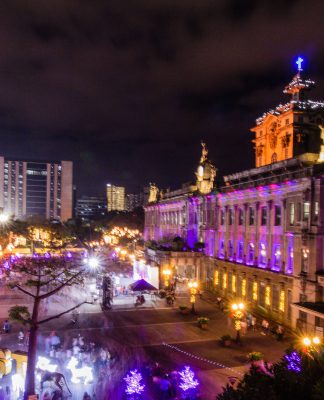CEBU CITY—THE 51ST International Eucharistic Congress (IEC) serves as an “eye opener” to realities concerning faith, religious persecution and the relevance of traditional liturgy and worship.
In a press conference last Jan. 25, the panel of speakers, led by Cebu Archbishop Jose Palma and Archbishop Piero Marini, president of the Vatican committee on eucharistic congresses, spoke about the Eucharist as a source of strength and unity among the faithful especially during times of harsh realities like armed conflicts, natural disasters and poverty.
Palma said the congress seeks to encourage people to not only trust in God but also act like the “Eucharistic people” expected of them.
“We hope and rely on the goodness of the Lord. But hope also challenges us that we also do what we can do,” Palma said.
Marini also called on Christians to “become signs of what they celebrate,” and turn into action what they celebrate in Mass.
Touching on the issue of Christian persecutions, Palma said the country was blessed for being able to practice faith without the threat of persecution. However, he warned against being too complacent in practice, considering the Philippines is a Catholic majority.
The Cebu archbishop said people in other countries who celebrate the Eucharist despite the risk of religious persecution display a kind of faith that is “precious to the Lord.”
Asked on what the Church was contemplating to engage the youth and whether a newer approach in celebrating Mass was needed, Marini explained the need to adapt the liturgy to particular circumstances.
Marini said “inculturation” of the liturgy in different countries, including the Philippines, had obtained the approval of the Vatican but there were still many things to consider before implementing changes.
“It is a slow process. There is a need to return to varieties,” Marini said, referring to the varying liturgies of the early Christians in Rome, North Africa and the Byzantine empire.
Chinese persecution
In a testimony, Hong Kong Bishop Emeritus Joseph Cardinal Zen called on the IEC pilgrims to include the persecuted Christians in their prayers, especially the Chinese Christians.
“[Chinese Christians] believe in Him as their redeemer, the One who died on the cross, who renews his supreme sacrifice on the Cross in the Eucharist, the one who gives the fullness of His Spirit and so introduced us into an abundant life, a life of love and of glory,” Zen said.
Cardinal Zen recalled the “big persecution” in Shanghai on Sept. 8, 1955, which led to the arrest of almost a thousand people including Bishop Ignatius Kung Pin-Mei, who kept true to his faith shouting “Long live Christ the King,” despite being taunted and accused. with reports from Krystel Nicole A. Sevilla And Lea Mat P. Vicencio













